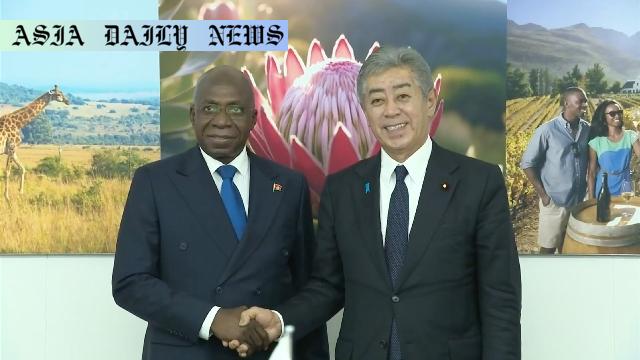G20: Japan’s Foreign Minister Iwaya calls for a united front to address global issues like climate change and economic challenges.
G20 nations discussed global challenges at the summit in Johannesburg.
Japan’s Foreign Minister emphasized disaster-mitigation strategies.
Call for reform in the World Trade Organization was highlighted.
Japan aims to strengthen ties with African nations through TICAD.

Introduction: The G20’s Role in Addressing Global Challenges
The G20 summit has become a pivotal forum for addressing and responding to critical global issues. At the recent foreign ministers’ session held in Johannesburg, South Africa, discussions revolved around economic policies, climate change, and international cooperation. Japan’s Foreign Minister, Iwaya Takeshi, stood out with a strong call for unity among member nations. His speech provided not only insights into Japan’s priorities but also outlined pressing opportunities for global collaboration.
Climate Change and Disaster-Mitigation: A Unified Approach
In the face of escalating environmental challenges, Iwaya stressed the pressing need for cohesive action against climate change. He emphasized Japan’s commitment to sharing its advanced disaster-mitigation technologies, which are designed to prepare for and effectively respond to natural calamities like earthquakes and typhoons. This cooperation highlights Japan’s responsible stance in spreading technical innovations aimed at disaster resilience globally.
Reforming Global Economic Structures
Another focal point of Iwaya’s address was the importance of preserving a free and fair international economic order. As global economies navigate turbulent times, the Japanese minister underscored the need to reform the World Trade Organization (WTO). His remarks seemed to hint at protectionist policies, such as high tariffs proposed under the former Trump administration, urging for better frameworks to sustain global trade and economic prosperity.
Focus on Africa: Japan’s TICAD Initiative
Japan’s investment in African development took center stage as Iwaya highlighted the upcoming Tokyo International Conference on African Development (TICAD) scheduled for August. TICAD illustrates Japan’s long-standing dedication to fostering growth and partnerships in Africa. Through collaboration with African countries, Japan aims to align its efforts with the G20’s broader agenda.
Conclusion: A Call for Unity and Global Connectivity
Overall, Japan’s messaging at the G20 session struck a chord of unity and global solidarity. Iwaya’s proposals reflected Japan’s commitment to addressing vital global challenges while fostering economic and developmental equity. As the world faces a complex array of issues, cohesive diplomatic engagements such as these will be instrumental in shaping a sustainable and prosperous future for all.
Commentary
The Significance of Japan’s Contribution
Japan’s call for unity at the G20 summit is not only timely but indicative of the country’s proactive stance in global politics. Foreign Minister Iwaya Takeshi’s emphasis on disaster-mitigation technologies aligns with Japan’s reputation as a leader in disaster preparedness and resilience. Sharing these technologies symbolizes Japan’s willingness to collaborate and contribute to global welfare—an inspiring gesture in an increasingly fractured world.
Economic Equity and Trade Reform
The mention of WTO reforms by Iwaya cannot be understated. With shifting economies and protective trade policies gaining traction globally, the call to reevaluate international trade frameworks is both necessary and urgent. It is clear that Japan envisions a global economy where countries operate on fair grounds, facilitating growth and partnerships rather than division and economic stagnation.
Strengthening Africa-Japan Relations
The upcoming TICAD conference brings an exciting focus to Japan-Africa relations. By aligning its developmental goals with those of the G20, Japan is not only aiding Africa’s progress but also solidifying its role as a global partner in fostering international growth. This initiative deserves attention and could serve as a model for other nations looking to strengthen ties with emerging economies.
In conclusion, Japan’s contributions at the G20 summit reaffirm the importance of multilateralism in addressing global challenges. Nations must continue to work together, and Japan’s call for unity serves as a beacon of hope and collaboration in the modern era.


